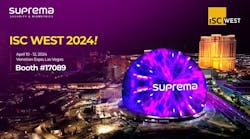Colombia started issuing special consular ID cards Thursday aimed at making it easier for its citizens living in the United States to open bank accounts and get drivers' licenses -- the latest nation to issue a document that some say facilitates illegal immigration.
''We want this to become a starting point to make the daily life easier for our countrymen,'' Foreign Minister Carolina Barco said during a news conference at Colombia's consulate here.
Colombia became the fourth Latin American nation to issue the card, commonly known in Spanish as matr?cula consular. Mexico has issued more than 2.2 million of the IDs since launching a new version of the document in March 2002 that incorporates more security features like bar codes and fingerprints. Guatemala and Honduras also have issued them.
The cards are designed primarily to give illegal migrants in the United States a means of identification that they can use to obtain drivers' licenses, bank accounts and other services.
Mexico's Foreign Ministry said some local officials in 33 U.S. states, 1,180 police departments and 178 banks accept its cards as a valid form of identification. Florida does not recognize the matr?cula, but Miami-Dade County does.
The Bush administration supports the use of the cards, which would allow U.S. banks to handle the $32 billion a year in remittances that migrants here send back to their relatives in Latin America, usually through means that do not require IDs but are more expensive.
Last week, the House of Representatives voted against an initiative that would have stopped banks from accepting the ID cards. But the cards have raised concerns among some members of Congress, who feel the IDs could be faked and used by terrorists.
Barco said Colombian officials consulted with Mexican officials to ensure the documents are safe. If the Washington pilot program works, the idea is to roll out the service to other consular offices early next year, she added.
Colombian officials stressed that the ID card is not a valid migration document.
''It is not a visa to enter the United States; it is not a credit card,'' said Ambassador Luis Alberto Moreno.
Some community leaders doubted whether the deeply distrustful Colombian community will embrace the ID. ''The Colombian community will not come to the consulate to be identified,'' said the Rev. Eugenio Hoyos of Dale City, Va. ``We prefer to continue living in the shadows.''
Hoyos said many Colombians live under the ''stigma'' of being associated with a country that is the world's top exporter of cocaine.
Barco sought to assure Colombians that they had nothing to fear by obtaining the ID card. ''They can have our complete assurance that the information that is obtained stays in the consulate,'' she said.

